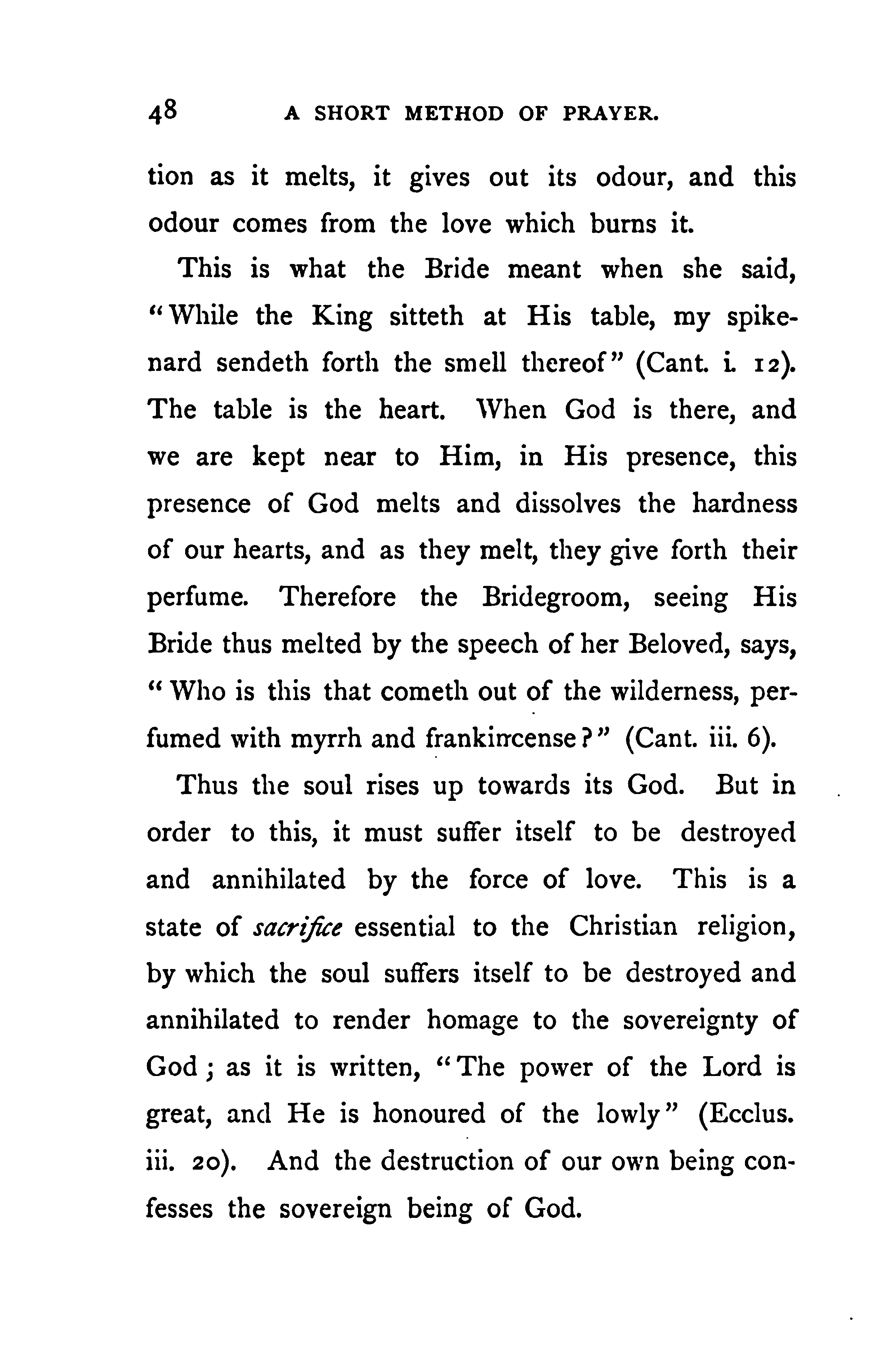tion
as
it
melts,
it
gives
out
its
odour,
and
this
odour
comes
from
the
love
which
bums
it.
This
is
what
the
Bride
meant
when
she
said,
"While
the
King
sitteth
at
His
table,
my
spike-nard
sendeth
forth
the
smell
thereof"
(Cant.
L
12).
The
table
is
the
heart.
When
God
is
there,
and
we
are
kept
near
to
Him,
in
His
presence,
this
presence
of
God
melts
and
dissolves
the
hardness
of
our
hearts,
and
as
they
melt,
they
give
forth
their
perfume.
Therefore
the
Bridegroom,
seeing
His
Bride
thus
melted
by
the
speech
of
her
Beloved,
says,
"
Who
is
this
that
cometh
out
of
the
wilderness,
per-fumed
with
myrrh
and
frankincense
?
"
(Cant.
iii.
6).
Thus
the
soul
rises
up
towards
its
God.
But
in
order
to
this,
it
must
suffer
itself
to
be
destroyed
and
annihilated
by
the
force
of
love.
This
is
a
state
of
sacrifice
essential
to
the
Christian
religion,
by
which
the
soul
suffers
itself
to
be
destroyed
and
annihilated
to
render
homage
to
the
sovereignty
of
God
j
as
it
is
written,
"
The
power
of
the
Lord
is
great,
and
He
is
honoured
of
the
lowly"
(Ecclus.
iii.
20).
And
the
destruction
of
our
own
being
con-fesses
the
sovereign
being
of
God.

